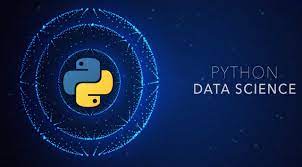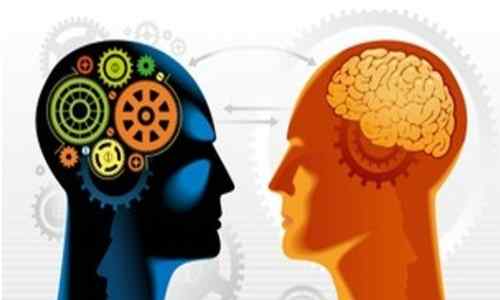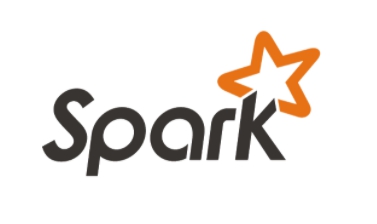



 Tech & IT
Tech & IT
 Business
Business
 Coding & Developer
Coding & Developer
 Finance & Accounting
Finance & Accounting
 Academics
Academics
 Office Applications
Office Applications
 Art & Design
Art & Design
 Marketing
Marketing
 Health & Wellness
Health & Wellness
 Sounds & Music
Sounds & Music
 Lifestyle
Lifestyle
 Photography
Photography
More Learnfly
Business Solution Become an Instructor
What is big data? It's a phrase used to quantify data sets that are so large and complex that they become difficult to exchange, secure, and analyze with typical tools. These courses on big data show you how to solve these problems, and many more, with leading IT tools and techniques.

By : Navdeep Kaur
Great for CCA 159 Preparation - Big Data Certification for Non Programmers,Business A...
4.6 93774
3:33:6 hrs 47 lectures Beginner Level

By : Manoj G T
Apache NiFi is a robust open-source Data Ingestion and Distribution framework and mor...
4.2 72581
1:23:18 hrs 19 lectures Beginner Level

By : Saheb Singh chaddha
Managing Big data using Hadoop tools like MapReduce, Hive, Pig, hBase and m...
4.1 33137
26 lectures Beginner Level

By : Eduardo Morelli
Use Big Data tools (R, RStudio, MongoDB, AzureML) to solve a real problem!...
4.6 5459
6 lectures Beginner Level












Learn more topics in various categories at one place. Explore unlimited courses in other categories and up-skill yourself today.

 Jazeb Akram
Jazeb Akram 4.2 769692 Beginner Level

 John Hedengren
John Hedengren 4.1 568108 All Level

 Ranjan Pandey
Ranjan Pandey 4.1 345839 All Level

 Pieter Vliegenthart
Pieter Vliegenthart 4.6 99992 All Level

 Muhammad Ahsan Pervaiz
Muhammad Ahsan Pervaiz 4.2 99745 All Level

 Jerome P.
Jerome P. 4.8 99497 All Level

 Senol Atac
Senol Atac 4.9 99058 All Level

 Vikas Munjal
Vikas Munjal 4.8 99028 Beginner Level

 Chandramouli Jayendran
Chandramouli Jayendran 4.9 98575 Beginner Level

 ajmal ali
ajmal ali5 Lectures Beginner Level

 Yoann Bierling
Yoann Bierling16 Lectures Beginner Level

 Daniel Pham
Daniel Pham273 Lectures Beginner Level

 Daniel Pham
Daniel Pham62 Lectures Beginner Level

 Daniel Pham
Daniel Pham59 Lectures Beginner Level

 Satyendra singh
Satyendra singh19 Lectures Beginner Level

 RougeNeuron Academy
RougeNeuron Academy28 Lectures Beginner Level

 RougeNeuron Academy
RougeNeuron Academy27 Lectures Beginner Level

 Sekhar Metla (Microsoft Certified Professional) Sudha
Sekhar Metla (Microsoft Certified Professional) Sudha87 Lectures Beginner Level

 John Hedengren
John Hedengren 17 Lectures Beginner Level

 Arbaz Khan
Arbaz Khan16 Lectures Beginner Level

 Juan Galvan
Juan Galvan140 Lectures Beginner Level

 Abdulhadi Darwish
Abdulhadi Darwish71 Lectures Beginner Level

 Prince Patni
Prince Patni25 Lectures Beginner Level

 Amit Ranjan
Amit Ranjan14 Lectures Beginner Level

 Amit Ranjan
Amit Ranjan31 Lectures Beginner Level

 Md. A. Barik
Md. A. Barik22 Lectures Beginner Level

 Pruthviraja L
Pruthviraja L103 Lectures Beginner Level

 Arthur Tkachenko
Arthur Tkachenko29 Lectures Beginner Level

 Navdeep Kaur
Navdeep Kaur70 Lectures Beginner Level

 Navdeep Kaur
Navdeep Kaur23 Lectures Beginner Level

 Navdeep Kaur
Navdeep Kaur47 Lectures Beginner Level

 Manoj G T
Manoj G T19 Lectures Beginner Level

 Jordan Stanchev
Jordan Stanchev21 Lectures Beginner Level

 Saheb Singh chaddha
Saheb Singh chaddha26 Lectures Beginner Level

 Phikolomzi Gugwana
Phikolomzi Gugwana31 Lectures Beginner Level

 Abhilash Nelson
Abhilash Nelson15 Lectures Beginner Level

 Eduardo Morelli
Eduardo Morelli6 Lectures Beginner Level
Big Data refers to extremely large and complex data sets that exceed the capabilities of traditional data processing methods. It encompasses three main characteristics: volume (large amounts of data), velocity (rapid data generation or processing), and variety (diverse data types).
Key technologies in Big Data processing include Apache Hadoop, Apache Spark, Apache Flink, and distributed storage systems like HDFS (Hadoop Distributed File System). These technologies enable the storage, processing, and analysis of massive datasets.
Big Data analytics allows businesses to gain valuable insights from vast amounts of data. It facilitates data-driven decision-making by identifying patterns, trends, and correlations that can inform strategic planning, customer engagement, and operational efficiency.
Challenges in managing Big Data include scalability, data integration, security, and the need for specialized skills. Analyzing Big Data poses challenges related to extracting meaningful insights from diverse and unstructured data sources.
Big Data differs from traditional data processing in terms of scale, speed, and variety. Traditional data processing methods may struggle to handle the volume and speed of Big Data, and Big Data often involves diverse data types beyond the structured data typically handled in traditional databases.





